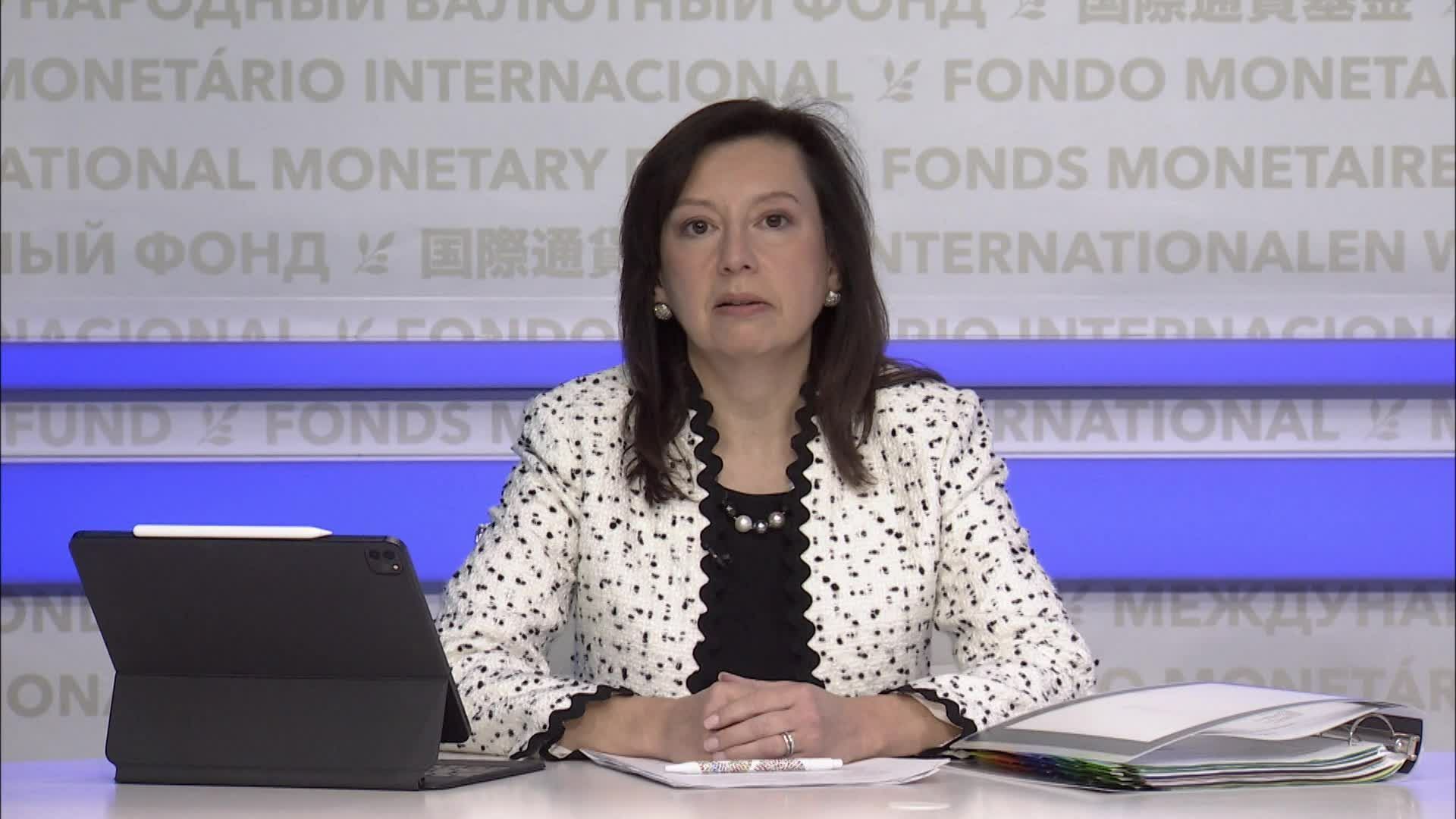Climate mitigation talks in Dubai last week were a “COP of hope”, IMF spokesperson Julie Kozack said Thursday (Dec. 7) in Washington, DC. Tens of thousands of journalists, policymakers, bankers and civil society organizations are gathered there for the UN’s 28th meeting of the Conference of the Parties (COP) to the UNFCCC.
IMF Managing Director Kristalina Georgieva attended the meeting, aimed at engaging governments around the world to curb climate change.
“We at the IMF went to COP emphasizing three areas where we think more progress is needed. The first is on carbon pricing, where, based on our analytical work, we called for a carbon price of $85 a tonne. And we also, of course noted the increase in carbon price that has been taking place. And as well as the broadening coverage of carbon pricing,” said Kozack reading out the meeting to reporters.
“Second, on fossil fuel subsidies, our recent analysis is that these are currently costing $1.3 trillion annually in explicit costs. And the removal of such fossil fuel subsidies is a critical step in decarbonization. And finally, on climate financing, like others, we recognize the need for financing, for decarbonization to step up. And, of course, that much of this financing will need to come from the private sector and through coordinated action by multilateral development banks, the official sector,” she added telling reporters this was her final press briefing of the year.
This was also going to be the last chance to talk to reporters ahead of the inauguration of president-elect Javier Milei of Argentina. Milei has spoken with IMF Managing Director Kristalina Georgieva, and a team of his economic advisors made a working visit to the Fund’s HQ last week.
“I think it's fair to say that we are focused right now, as I said, on strong, credible, politically backed stabilization plan to address Argentina's macroeconomic imbalances. Inflation is, of course, one of those imbalances, and it does require strong, a strong and credible central bank in order to reduce inflation,” said Kozack.
She also took questions on the economic impact of the ongoing conflict between Israel and Gaza. So far, economic reverberations on Israel’s neighbors and the region have been moderate, but the longer the fighting goes the greater the risks.
“Looking beyond this epicenter, the conflict may affect the immediate region through a number of channels. The channels include tourism. You could see a reduction in tourism in these neighboring countries. You have we have the potential for higher oil and gas prices, disruptions to financial markets and disruptions to regional trade routes and the potential for higher trade costs,” Kozack explained.
A drop in tourism revenue will be especially hard to Egypt and Jordan, Kozack said pointing out that they rely on revenue from that industry for a good portion of foreign exchange and employment. She noted that financing was under review for Jordan, and increased support may be needed for Egypt as well.
A copy of the full transcript is available at IMF.org

